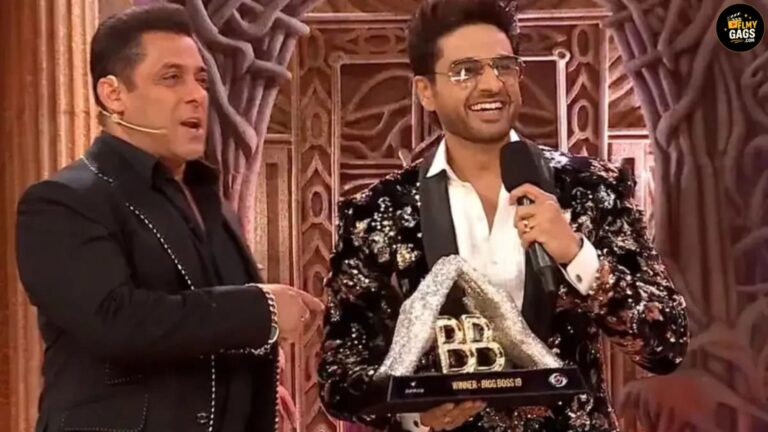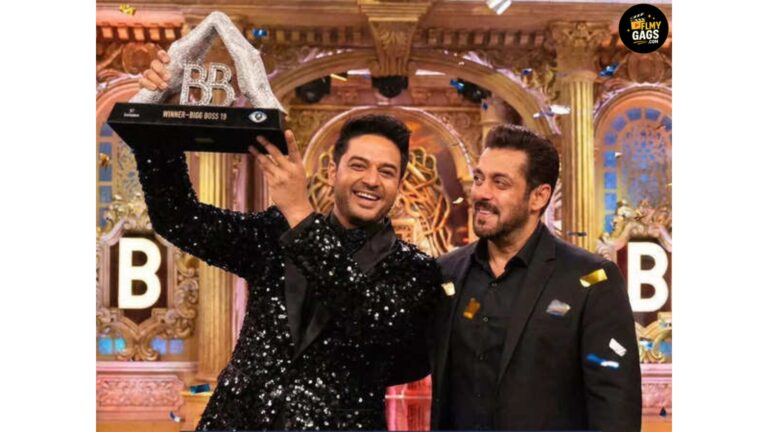
In the latest dramatic episode of Bigg Boss 19, host Salman Khan took a firm stand against body-shaming, calling out contestants Tanya Mittal and Neelam Giri for their cruel remarks about fellow house-mate Ashnoor Kaur. The confrontation unfolded during the “Weekend Ka Vaar” segment, when Salman asked both women to comment on how Ashnoor looks — they gave polite compliments (“She’s looking good”, “like a princess”) only for Salman to shock them by revealing the harsh private comments they had made about her behind her back.
Tanya had reportedly compared Ashnoor to an elephant and a dinosaur, called her “fat” and mocked her “balloon-like” face, while Neelam joined in with taunts like “Dadi lag rahi hai” (“She looks like a grandmother”) and “Jurassic Park” references.
Ashnoor was visibly upset and emotional during the confrontation, showing the real human impact of such remarks. Meanwhile, former Bigg Boss winner Gauahar Khan condemned the behaviour, calling body-shaming unacceptable and emphasising that true beauty comes from kindness and self-acceptance, not putting others down.
Why this matters
Body-shaming on national television isn’t just “banter” — it carries real emotional weight. Here are the key take-aways:
- The episode exposed how even a “big reality show” platform can foster cruel commentary under the guise of “house drama”.
- Viewers and social-media users called out the contestants, pointing out that the target (Ashnoor) is only 21, still early in her career, and does not deserve this harsh treatment.
- The incident sparked wider conversation: > “This season is genuinely triggering for people who’ve faced bullying … The way they’re mocking facial hair and body features? People with PCOS/PCOD already struggle … And to see the same taunts happening on national TV …”
- By openly calling out the behaviour, Salman Khan and other public voices forced the conversation to shift from “entertainment” to “responsibility”.
What this means for the show and contestants
For the show’s makers: This controversy puts them on the spot — whether they will treat body-shaming as serious misconduct or continue to portray it as “just drama”. Many fans believe the clip should have been aired more prominently rather than buried in live-feed.
For contestants like Tanya and Neelam: Public backlash means their “brand” inside the house is damaged. If they continue with such behaviour, they risk elimination or loss of viewer sympathy.
For Ashnoor: Despite the hurtful remarks, she has been widely praised for handling the situation with grace and dignity.
Why kindness matters more than ever
In a world where media and reality-TV amplify every comment, kindness is not optional — it’s essential. When individuals use someone’s body or appearance as fodder for mockery, the impact isn’t just on that moment — it ripples out into viewers’ lives, fosters self-doubt, and normalises cruelty. As Gauahar Khan aptly put it: “Without kindness, you cannot be truly beautiful… Putting others down doesn’t make you beautiful.
What viewers can do
- Call out body-shaming when you see it — whether on TV or social media.
- Support those who are targeted — often they stay silent, so a positive voice helps.
- Recognise the difference between “conflict for entertainment” and “cruelty that crosses a line”. This incident shows the line was crossed.
- Evaluate the shows we watch: do they glorify toxicity? Or promote respect?
Final thought
The confrontation in Bigg Boss 19 serves as a reminder: reality shows are not exempt from real-life ethics. When someone is demeaned for their body, it’s no longer “just part of the game” — it’s bullying that matters. And the audience, the contestants, the host — all bear a portion of responsibility. Let this moment be a turning point for better behaviour, better content, and more empathy.



